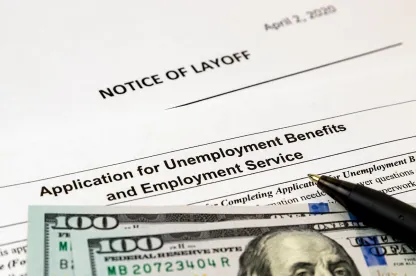On April 28, 2021, President Joe Biden unveiled a proposal to permanently expand unemployment benefits in his most recent economic package, the American Families Plan. The proposed expansion of unemployment benefits is in addition to the $2 billion already allocated to unemployment “system modernization, equitable access and fraud prevention” from the American Rescue Plan Act of 2021. According to the White House, “the [unemployment insurance] system is in desperate need of reform and strengthening.”
Support from Congressional Democrats
Unemployment reform has support from Democrats in both houses of Congress. In a letter on April 23, 2021, to President Biden 27 House Democrats and 11 Senate Democrats proposed increasing jobless benefits, extending the duration of the weekly benefits, expanding the pool of eligibility and creating a system that would tie payments to changing economic conditions.
U.S. Senate Committee on Finance Chairman Ron Wyden (D-OR) and Senator Michael F. Bennet (D-CO) are leading the push for an overhaul of the nation’s unemployment insurance system. Under the Senate Democrats’ proposal, benefits would be enhanced, allowing many low- and middle-income workers to receive at least 75 percent of the average wages they earned when they had stable employment. The proposed bill also includes at least 26 weeks of unemployment benefits and unemployment eligibility permanently for part-time workers. One of the stated goals of the senators’ discussion draft is to “minimize disparities between states’ unemployment insurance programs.”
The Senate Democratic plan would also provide benefits to workers who “quit their jobs with good cause, and offer benefits to workers during their first week of unemployment.” In addition, “[t]he proposal would also establish a $250 per week jobseeker allowance that would be available to any unemployed workers not covered by the traditional unemployment insurance system, such as self-employed workers and new entrants to the labor force. The proposal also creates a $25 weekly federal allowance per dependent and provides for federal funding to increase unemployed workers’ wage replacement rates to 100 percent during major disasters or public health emergencies.” Senators Wyden and Bennet have stated they are reviewing further changes to the way that the U.S. government funds the unemployment insurance system but have not given any details as to how the proposed expansions would be funded.
In short, the suggested changes encompass comprehensive and wholesale reform to how the unemployment insurance system is currently administered and removes states’ autonomy in administering unemployment benefits.
Employer Concerns
Employers may be concerned that enhanced unemployment payments may affect the availability of jobseekers. Data from the U.S. Department of Labor (DOL) shows that at the end of February 2021, there were 7.4 million job openings around the country, which was a five-month high. As a specific example, as of April 16, 2021, the South Carolina Department of Employment and Workforce stated, “there are 85,000 jobs posted by employers in the state of South Carolina. Meanwhile, [the state] has approximately 116,000 people receiving unemployment benefits each week”. This progress has prompted the state to reactivate work search requirements previously halted by the department during the peak of the pandemic. In addition, South Carolina, along with Montana and Arkansas, has announced it will no longer participate in federal enhanced unemployment benefits as of June 30, 2021.
Employers may want to review the proposal and be aware of the potential impact of the uniform nature of the proposal on employment rates. Uniform rates of unemployment will not take into account local rates of pay or cost of living differences in different states. This was a major point of contention when Congress first enhanced benefits as part of the Coronavirus Aid, Relief, and Economic Security (CARES) Act. Republican senators, led by Senator Lindsey Graham (R-SC), unsuccessfully challenged the uniform nature of enhanced benefits to unemployment during the pandemic.




 />i
/>i

